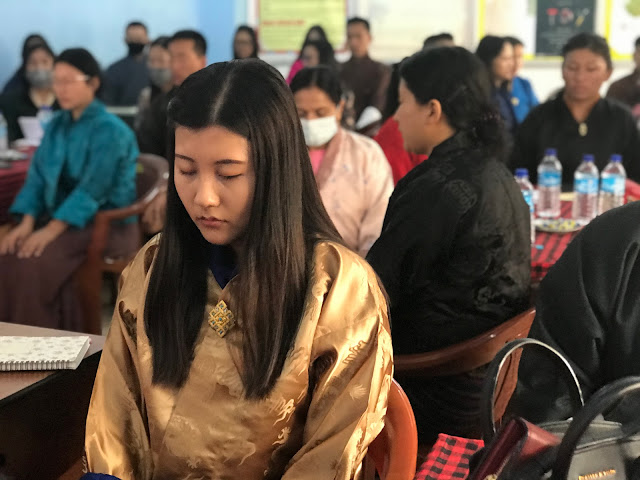“What kept you late again? It’s not my responsibility to clear the dish everyday. Aum Wangmo’s husband arrived hour ago and he is in the garde...” A tired wife rates when her husband enters home in the evening. She doesn’t even look at him to know he appeared tired and fatigued from work.
The husband reacts before his wife could end her words, “Go and marry him, your insinuating woman....” And this is a beginning of a troubled relationship, of painful nights and hopeless days. Similar things happen everywhere!
A haloucaust survivor, an Austrian psychologist, Dr. Viktor E Frankl’s realization could change how we respond to stimuli that triggers us everyday. His research findings correlate to what is taught in Buddhist teachings about how we speak and respond like a bodhisattva when hurt. The
Everyone and everything triggers us, catapulting us into compulsive reaction, as if it is a necessity to respond. Our responses are immediate, often without any time for rational thought as if immediacy can prove is right.
Dr. Frankl wrote, “Between stimulus and response there is a SPACE. In that space is our power to choose our response. In our response lies our growth and our freedom.” But we barely use this space to stop, think and respond.
When stimulus that contradicts our opinion and situations that disfavour us triggers our basal instinct, we have no time to take a breath, we react. Our reactions are driven by emotional dissatisfaction, the very failure to understand how we feel when triggers presents. That is the beginning of suffering, the beginning of a distorted response that invite even more dissatisfaction.
The more we fail to use the space, more irrational and erratic our lives are, disconnecting us from people, becoming less respected and loved. While we pursue to live happier relationship and fulfilling lives at home and workplace everyday, our emotional lives are wrought with painful experiences. Something is going wrong on our part. How does, then, the use of space change in our favour to draw greater satisfaction and wellbeing?
The SPACE is the answer. The space is a time to pause, to be mindful, to draw a breath, to notice how trigger affects us and to reflect before we respond. Although unfortunately we are habituated to respond immediately, we can train to pause by practicing mindfulness meditation, a mere attention of breath for ten seconds. The ten seconds of cycle of breath slower than the abnormal moments of everyday breathing, like a sigh at rest after a tiring walk.
The more we sit to repeat this ten seconds of breathing in and out, intentionally focusing attention on breath, the more we become capable of pausing. There is a magic courage and confidence that automatically creates space before we respond. The more we remain in the spaciousness of this space between breaths, the more natural it becomes a part of our habit to remain calm. We begin to notice greater necessity for responses and even greater opportunity to reframe how we respond that is graceful, meaningful and altruistic. This invokes deeper happiness and wellbeing for oneself and others, through mutual understanding towards more productive responses.
In this space, neither the wife will fail to notice how husband must be feeling nor the husband fail to understand why she compared to other’s husband. There is a greater opportunity to understand beyond words, a knowing with empathy for each other, and an ability to understand how our reactions could hurtle unnecessary response again. To this effect, some decades ago, His Holiness the late Dilgo Khyentse Rinpoche said, “The more and more you listen, the more and more you hear, the more and more you hear, the deeper and deeper your understanding becomes.” But how good are we as listeners? We only want to talk and be heard, proving our voices are right. There is no space for listening.
Mindfulness meditation is proven to be one key to widening and deepening use of Doctor Frankl’s space between stimuli and response. His statement is proven further by years of neuroscientific, cutting-edge statistical researches on effects of meditation in regulating our emotions and drawing happiness that is intrinsic and everlasting.






0 comments:
Post a Comment